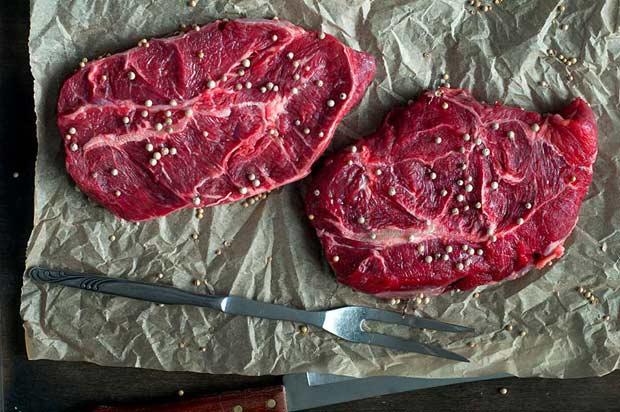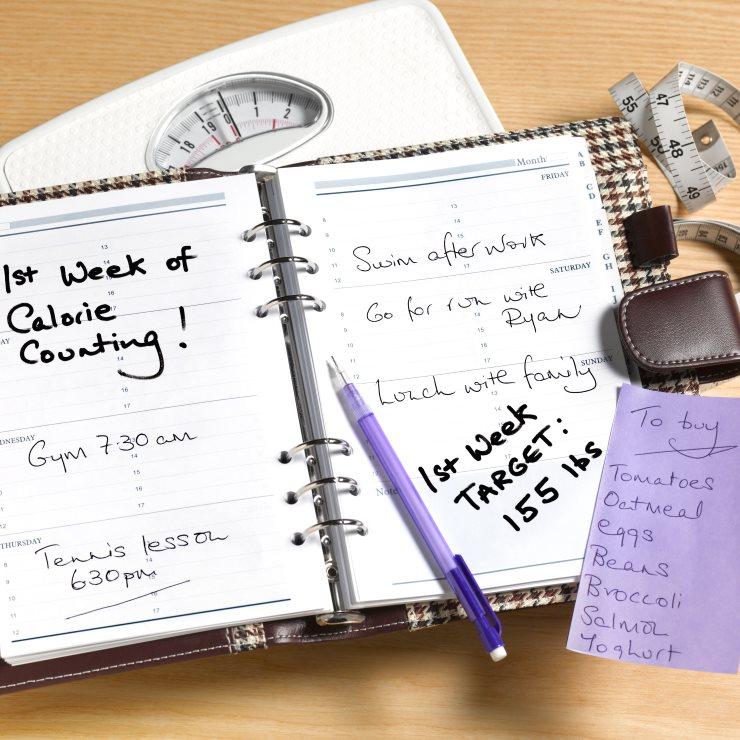 Photograph by castillo dominici/getty images
Photograph by castillo dominici/getty imagesWant a compelling reason to immediately resolve your marital woes? Letting your fights get too hot might make you more susceptible to weight gain. A recent study found that couples whose arguments were tinged with hostility had higher levels of a hunger hormone—and were more likely to make poor food choices—than couples who were kinder to each other. (Find out 10 little things connected couples do.)
Researchers at the University of Delaware tracked hormone levels in 43 couples as they ate a meal and then discussed their differences. Observers rated the discussions—which often boiled over into arguments—on the use of hostile language. Couples who ranked high in the use of hostile language also had the highest circulating levels of ghrelin, a hunger-related hormone that encourages eating. When the researchers asked the couples to fill out food surveys, hostile couples were more likely to report eating foods high in sodium and unhealthy fats, compared with those whose interactions were more civil.
"The findings suggest marital distress may be an important risk factor for weight gain," says study author Lisa Jaremka, PhD, an assistant professor at the University of Delaware, though she is quick to add that the effect was missing in people already overweight. In other words, don't wait too long to get couples counseling. (Lose up to 15 pounds WITHOUT dieting with Eat Clean to Get Lean, our 21-day clean-eating meal plan.)
2. Overdoing it on iron
 Photograph by Diany photoworks/getty images
Photograph by Diany photoworks/getty imagesIf you were thinking about cutting back on red meat to help control calories, here's one more reason that could be a sound plan: A new study suggests the amount of iron in red meat might alter hunger hormones in your body, slowing metabolism and encouraging you to eat more.
Donald McClain, director of the Center on Diabetes, Obesity, and Metabolism at Wake Forest School of Medicine, fed mice diets that contained high or low levels of iron while tracking their levels of leptin, an appetite-suppressing hormone. After 2 months, McClain discovered that leptin levels had dropped by as much as 42% in the high-iron mice. To test whether low leptin led to overeating, he let both groups of mice eat as much as they wanted Sure enough, the high-iron group downed more calories than mice on the low-iron diet. (If you feel like you're iron deficient, here are six signs to look for.) Finally, McClain checked iron and leptin levels in 76 people and discovered that the higher their iron, the lower their leptin levels were. People with the highest iron had one-third the leptin of those with the lowest amounts of iron. (Everyone's iron levels fell within the normal range.)
McClain's findings suggest iron recommendations—18 mg a day for women ages 18 to 50, and 8 mg a day for women 51 and older—may be too high, he says. Eating more than a pound of red meat per week could be enough to raise leptin to levels he observed in his research, warns McClain. Unless your doctor says otherwise, you'll want to limit the amount of iron you get from meat and supplements, says McClain. But don't be too concerned about iron sources such as nuts, beans, spinach, and tomatoes: You don't absorb as much from these food sources as you do from red meat.
3. Blaming your DNA
 Photograph by Mina De La O/getty images
Photograph by Mina De La O/getty imagesSomeday, science may be able to link certain genes to a tendency to gain weight—but we're not there yet. And a recent study suggests that believing weight problems are genetic practically guarantees you'll pack on the pounds.
Tapping into a survey of nearly 9,000 women and men, Michael C. Parent, PhD, an assistant professor in the department of psychological sciences at Texas Tech University, and colleagues analyzed the participants' beliefs regarding the genetics of being fat. When Parent followed up 3 years later, he discovered that the more strongly people believed genetics played a significant role in fatness, the more likely they were to have gained weight. This group was also less likely to exercise and eat right.
Mind is definitely influencing matter here, since Parent's findings also revealed that people who believed their weight was under their control were more likely to eat well, exercise regularly, and have a lower BMI. "There is no direct genetic cause for obesity," says Parent. He recommends you avoid playing the genetic blame game; instead, embrace the idea that you are in control of your weight.
4. Generational changes
 Photograph by dolgachov/getty images
Photograph by dolgachov/getty imagesThis is truly frustrating news: Recent findings published in Obesity Research & Clinical Practice indicate that we're getting fatter on fewer calories than our parents did. Although we're eating about the same amount of food—and we're equally active—the current generation is gaining more weight than people did 40 years ago.
The researchers analyzed info on more than 36,000 people between 1971 and 2008, comparing diet, activity, and weight. Study author Jennifer Kuk, a professor of health and sciences at York University in Toronto, found that given the same amount of calories, an adult in 2008 is about 10% heavier than she would have been in 1971. "Again, we're finding that weight management is much more complex than just energy in versus energy out," says Kuk. The solution isn't complex, however: We all have to exercise more and be more careful about what we eat. Sigh—see you at the gym.
5. Eating "everything in moderation"
 Photograph by Scvos/Getty Images
Photograph by Scvos/Getty ImagesIt may be the most commonly cited diet advice, but research shows the rule to "eat everything in moderation" could actually be making you gain weight.
When they combed through data from 6,814 participants in a multi-ethnic study, researchers from the University of Texas Health Science Center at Houston found that people who ate a lot of different kinds of food had a 120% greater increase in waist circumference over 5 years than those who ate only a few types of foods.
But that doesn't mean you can pick and choose which food groups you include in your diet. The researchers believe "everything in moderation" didn't work in this case because study participants with a diverse diet were eating more unhealthy foods like processed meats, desserts, and soda and fewer healthy foods like fruits and vegetables. (Here's why you should stop drinking diet soda.)
The healthiest people in the study stuck to a small range of healthy foods like lean meats, vegetables, fruits, nuts, and whole grains.
6. Living alone
 Photograph by Digital Vision/Getty Images
Photograph by Digital Vision/Getty ImagesLiving the single life? Then you might want to go grocery shopping with a friend. Recent research suggests not having a partner to hold you accountable for making healthy food choices both when you're shopping and when you cook leads to an expanding waistline.
Researchers at the Queensland University of Technology analyzed 41 previous studies to explore the connection between living alone and lackluster diets. They found that people who live alone eat fewer fruits, vegetables, and fish and eat a less diverse diet overall.
Although the evidence isn't crystal clear, researchers believe people who live alone lack motivation and enthusiasm to cook healthy meals—or to cook at all. And not taking enjoyment in preparing or eating your food leads to a diet full of simple, ready-made, or takeout meals that don't have necessary nutrients.
Without a partner to cook or shop with, single people also have little support to fill their carts with healthy foods or to keep portions in check.
If you don't have a friend willing to spend girls' night at the grocery store, make it a point to stick to the aisles on the perimeter of the supermarket, where you'll find healthier, less processed options.




